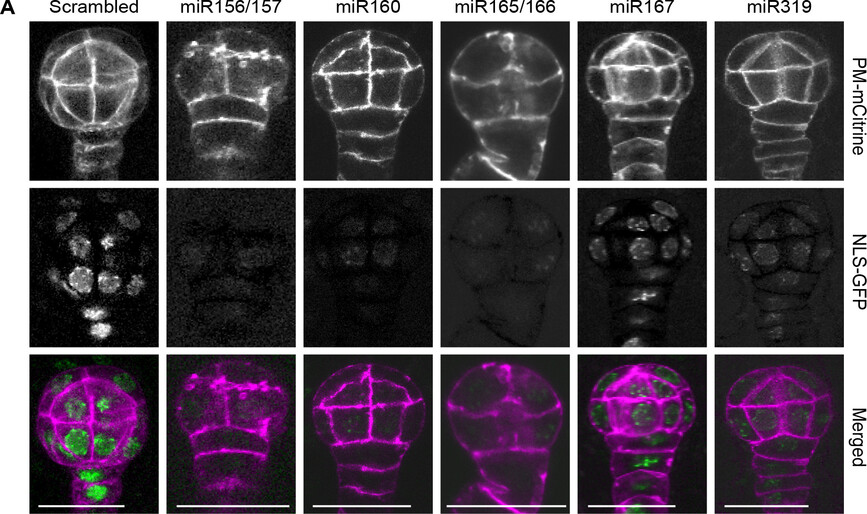In Arabidopsis, the basic plant body plan is precisely established during embryogenesis. Although it was known that miRNAs are involved in establishing this pattern, a comprehensive analysis of embryonic miRNAs and their targets has not been reported.
The researchers optimized protocols for sequencing small RNAs from low amounts of input RNA. Using this method, they identified 349 miRNAs that are present at different stages of embryogenesis. In plants, miRNAs function by cleaving matching mRNAs. Using nanoPARE, a technique previously developed in the lab to identify mRNA cleavage sites, they identified 59 mRNA target sites for embryonic miRNAs. Of these, 30 corresponded to transcription factors.
They went on to study how loss of miRNAs affects the embryonic transcriptome. They profiled transcriptomes from dicer1 mutants, which fail to generate miRNAs, and identified over 5000 genes that showed at least a two-fold change in expression level. Comparing these transcriptomes to other developmental stages, they found that loss of miRNAs led to the premature activation of late-stage gene expression programs.
Finally, they used a GFP-sensor and miRNA-resistant mRNA constructs to examine the expression and effect of six miRNAs. The GFP-sensor confirmed the expression of these miRNAs in specific embryonic stages and cell types. Transformation of the miRNA-resistant mRNAs into plants led to dramatic changes in embryo morphology, confirming the importance of these miRNAs in embryo development.
Altogether, their data support the role of miRNAs in regulating gene networks necessary for plant embryogenesis and provide a list of miRNAs and their mRNA targets important in this process.
